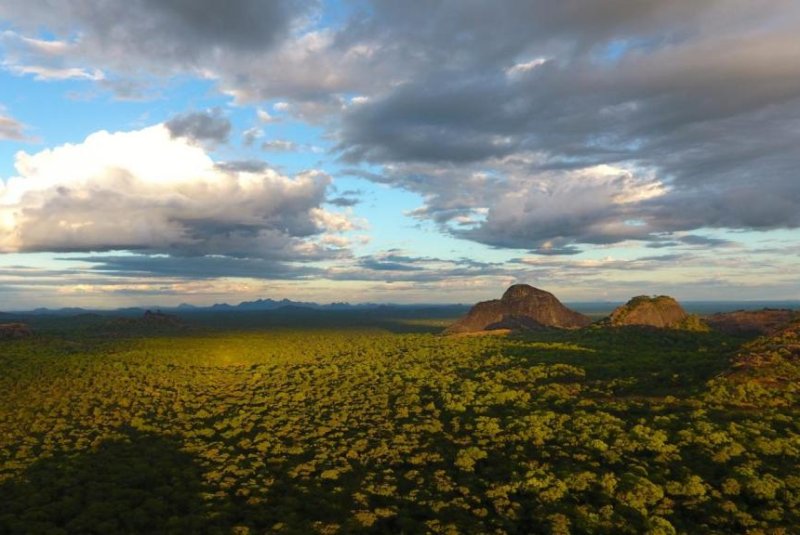Mozambique's Niassa National Reserve is one of the last remaining preserves large enough to host large numbers of megafauna. Photo by Jean-Baptiste Deffontaines/WCS
Nov. 30 (UPI) -- Niassa National Reserve, Mozambique's largest protected area, has proved resilient to forest losses. The reserve is big and healthy enough to support tens of thousands of elephants and 1,000 lions, according to a new study published this week in the journal Parks.
The preserve hosts tremendous biodiversity, but is one of the least studied regions of wilderness in Africa. In addition to wildlife, the 41 square miles are also home about 40,000 humans. The local population put pressure on natural resources in the preserve.
As part of the new study, scientists used high-resolution satellite images to measure change sin land-use and tree cover in the preserve.
Between 2001 and 20014, scientists measured deforestation accounting for just 1 percent of all forest. Though substantial, the rate of forest loss in Niassa is significantly lower than those experienced outside the preserve's boundaries.
While trees are still felled for farms and to build roads, the land's protected status has helped prevent large scale development. As a result, it remains capable of supporting large populations of megafauna, according to the latest research.
"The fact that forest loss is much lower than in the surrounding region or in many other African protected areas is a very encouraging result," James Allan, a conservation scientist at the University of Queensland in Australia, said in a news release.
The latest study offers estimates of the preserves' potential, but threats -- including poaching, wildfires, climate change, mining and logging -- have kept populations of lions and elephants smaller than they could be. Scientists believe these populations could grow with improved management.
"From a WCS Mozambique perspective, this research demonstrates just how important the Conservation Area network in Mozambique -- particularly Niassa National Reserve -- is for protecting forests and reducing deforestation," said James Bampton, director of Wildlife Conservation Society Mozambique.
"Reduced deforestation equates to reduced CO2 emissions and we are exploring how climate change funding could be used to support our active efforts to continue to keep deforestation rates low as intact forest ecosystems in Niassa support its outstanding and unique wildlife populations."















